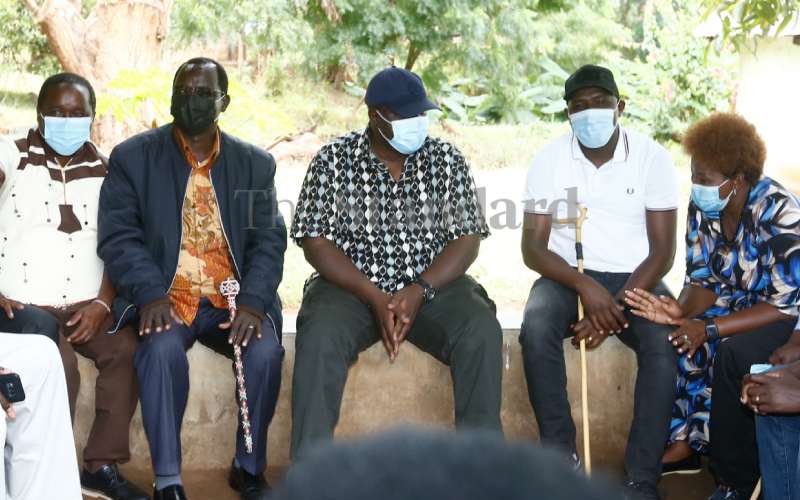×
The Standard e-Paper
Kenya’s Boldest Voice

Interior CS Dr Fred Matiang'i (centre) in Tot, Elgeyo Marakwet County. [Kipsang Joseph, Standard]
Interior Cabinet Secretary Fred Matiang’i this morning led a high-powered government delegation to meet warring communities in Elgeyo Marakwet as the death count from the recent clashes between communities rise to five.